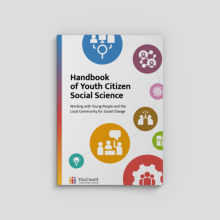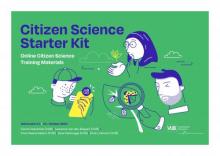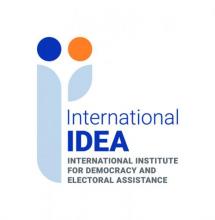Festival 2024 > Resources
Resources
Welcome to the Festival exhibition of resources for citizen engagement. Browse through toolkits, guidelines, blueprints, method descriptions, and other support tools that can help you in carrying out participatory processes. The resources relate to environmental and related issues, but they can be useful in implementing processes on other themes as well. Make sure you come back, as we will be updating this page with new cases.

BiodiverCities Atlas: A participatory guide to building urban biodiverse futures presents case-studies from the BiodiverCities project and several reflections on how to meaningfully engage citizens in the making of more liveable cities. This Atlas is a collection of stories. Stories of big, small and medium-size cities, with many or few green spaces, with a stronger or weaker culture of public participation that engages citizens in the design of public policies. These are stories of civic and political engagement - to do better, at times to do different, but mostly to do together. You will not find grandiose tales narrating transformative successes. You will find stories of civic, political and research experiments, accompanied by critical reflections. There are ten stories as ten are the cities that took part of the BiodiverCities project: Palermo, Valongo, Maribor, Leiden, Lisbon, Vilnius, Varese, Novi Sad and Palma.

AGORA’s main ambition is to promote societal transformational processes in different social, economic and political contexts through transdisciplinary tools and approaches. AGORA will promote democracy, climate justice, gender equality, equity, and foster adaptive capacity and citizens’ empowerment to pro-actively support decision-making processes. A set of pilot regions constitute the co-production arena to co-design, co-develop and co-implement climate adaptation solutions. AGORA is developing several resources in support of its mission.
Among which:
- Digital integrated Agora and resource hub with several resources: (a) mapping of existing citizen engagement initiatives on climate change adaptation; (b) guidance on methodologies for citizen engagement; (c) and a framework to co-evaluate citizen and stakeholder engagement methodologies.
- Digital Academy for promoting open source climate data for adaptation
- Digital Academy for tackling climate change disinformation.

Transparency International's Assessment Toolkit equips users with a structured framework and guidance to assess the 'state of public participation' in budget processes at any public institution that deals with public funds.
Specifically, the Assessment Tool assesses the extent to which an institution provides, or is ready to provide, opportunities for meaningful and inclusive public participation in budget processes. The tool is designed as a questionnaire comprising 46 indicators, arranged around eight pillars. The pillars of budget transparency, political will, legal and operational frameworks, and civic space measure the extent to which an institution is ready to facilitate any participatory process or mechanism, while indicators under the pillars of processes, outreach and awareness, inclusion and access, and accountability measure the nature, depth and quality of participation at the institution in practice.

In the project “Fair Energy Transition for All” we explored the concerns, fears, hopes and expectations of economically and socially disadvantaged people with regards to the energy transition. For that precise purpose, debates were held in nine European countries involving over 900 citizens and 150 experts from all over Europe. Our Method Guide presents the methodology used in this process as well as our learnings and best practices.
We hope to share these with practitioners, experts, philanthropists, and further actors interested in the process. The Method Guide aims to be a practical guide for everyone planning to better involve hard-to-reach citizens in the public debate, decision-making, and policymaking processes – regardless of the topic. It is meant to be a hands-on guide rather than on theoretical excursions. Proposed ideas, methods, and measures can be combined in different ways.

Citizen Social Science brings together social science researchers and citizens focusing on social issues, social phenomena and the social dimensions of the world, while applying and integrating social science methodologies and theories in their collaborative research efforts. These characteristics influence, for example, the focus and management of the project, the role of the researchers and the citizens, the participatory work, and ethical concerns. This handbook, and its toolkit, build on the experiences from the H2020 YouCount project (2021-2023) and represent a unique contribution to the field of co-creative citizen social science with and for youth. It is, overall, an exercise on social science communication that can be useful to a wide array of publics: practitioners, academics, policymakers, youth organisations and anyone interested in citizen social science as a way of creating a future shaped by more inclusive,

The citizen science starter kit shares information about what citizen science is (and what citizen science is not) through definitions, guidelines and tips & tricks. Furthermore, it aims to raise awareness about the opportunities of citizen science through providing key examples of citizen science projects. As such, the starter kit also encourages researchers to start with citizen science, and to consider the citizen science approach in (project) proposals. The starter kit also supports reflection and creative thinking. Through the interactive materials, researchers should be able to make critical design choices for running a citizen science research (project). Lastly, it provides you the necessary materials to get started with citizen science. You will find a step-by-step plan with templates and checklists, and other relevant resources to set up the activities.

The regional Participation Portal, that informs about participation opportunities and offers many toolkits and free materials, has been integrated with PartecipAzioni: a platform based on Decidim, created in collaboration with the Department of the Public Service (Italian Presidency of the Council of Ministers). To promote open government and facilitate the participation of citizens, three new spaces have been implemented: one for participatory processes promoted by local administrations and civil society organisations; one for EU consultations; and one in support of the regional community of participatory practices. Many of this participatory processes, regional or local, address issues related to the ecological transition. On the platform new toolkits, videos and various materials are available to facilitate the use of Partecipazioni. The regional Portal is also integrates with OPER, the Participation Observatory, wich systematizes information; makes available data for the self-production of statistics; suggests examples and accompanies the design of new participatory paths dedicated to the themes of ecological transition.

The EU-funded project ‘INCITE-DEM : Citizens Reinventing Democracy’ (2023-26) aims at enhancing inclusive participation and civic engagement, while expanding democratic innovation and dynamic feedback mechanisms between citizens and institutional actors in Europe.
Based on high quality research, the project experiments with inclusive design processes for democratic innovation in practice by setting up Democracy labs in 6 European countries (Finlandia, Germany, Norway, Portugal, Italy, Spain).
Experiences and research will be translated into specific policy guidance (at EU, national and local level) and strategic policy roadmaps for a sustainable, inclusive, and innovative democracy in a world in transformation.

Vulnerable and marginalized groups are often overlooked and not involved in climate adaptation. This leads to ineffective and unjust climate adaptation. As part of the StudiKommKlima project, the authors looked at how participation at the municipal level can be carried out in a more equitable way in order to develop more effective climate adaptation measures. This practical guide suggests inclusive participation through stakeholder and citizen involvement at both the conceptual and concrete measure level. In this way, the needs and knowledge of all population groups can be collected and taken into account. Throughout the entire participation process, cooperation with multipliers, i.e. representatives of vulnerable and marginalized people, is essential. In addition to recommendations for planning and implementing an inclusive participation process, the practical guide provides background information in the form of factsheets on expert interviews conducted and good practice projects, a collection of methods, potential multipliers and further reading, as well as a draft invitation letter for multipliers.

What if you could plant the seeds of the future you want, today? Share your ideas, wishes, hopes, fears and dreams about the future! Write a story about your desired future and answer a few questions! Your story matters. We want those making decisions to hear it. Share it now: www.futures4europe.eu/ourfutures
#OurFutures is a large collection of short stories on the future from people across the EU. The stories are collected via #OurFutures collector site (available in the 24 EU languages), to engage people of all generations and backgrounds to share their visions of the future. These stories are then analysed to gauge people's hopes, fears and ideas about the future and inform policymaking. Policy-makers can get insights into citizens' views based on country and demographic data (including age, gender, employment, financial status), as well as the thematic, emotional, geographic and other dimensions of the future stories.

This Report aims to increase the knowledge and understanding of the potential and challenges of citizens’ assemblies and other forms of deliberative democracy, as well as their capacity to improve climate policies and climate action, with a particular focus on the Global South. It describes how and when citizens’ assemblies and other practices of citizen deliberation can work towards such a purpose.
The Report uses academic research, reports, databases and case studies, and combines these sources with original research and an inventory of climate assemblies in the Global South. It presents lessons on how to plan and design climate assemblies to maximize their impact.
